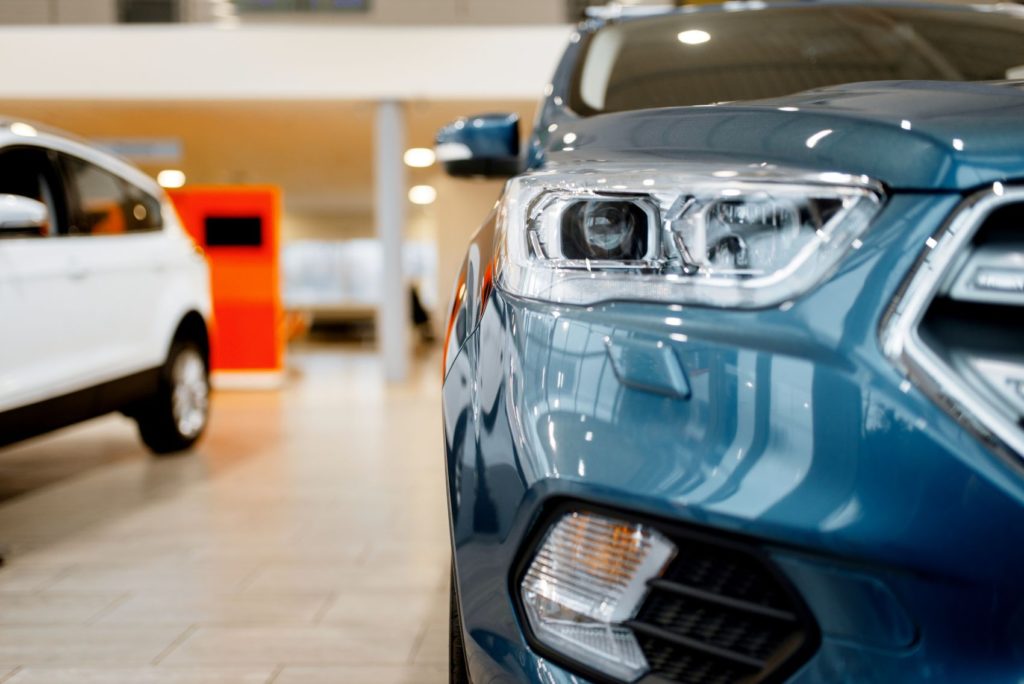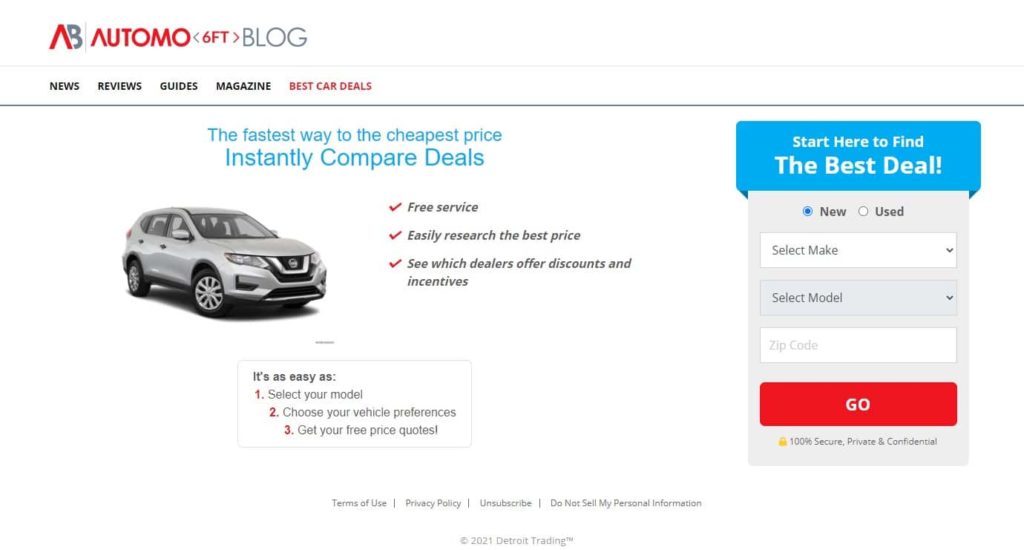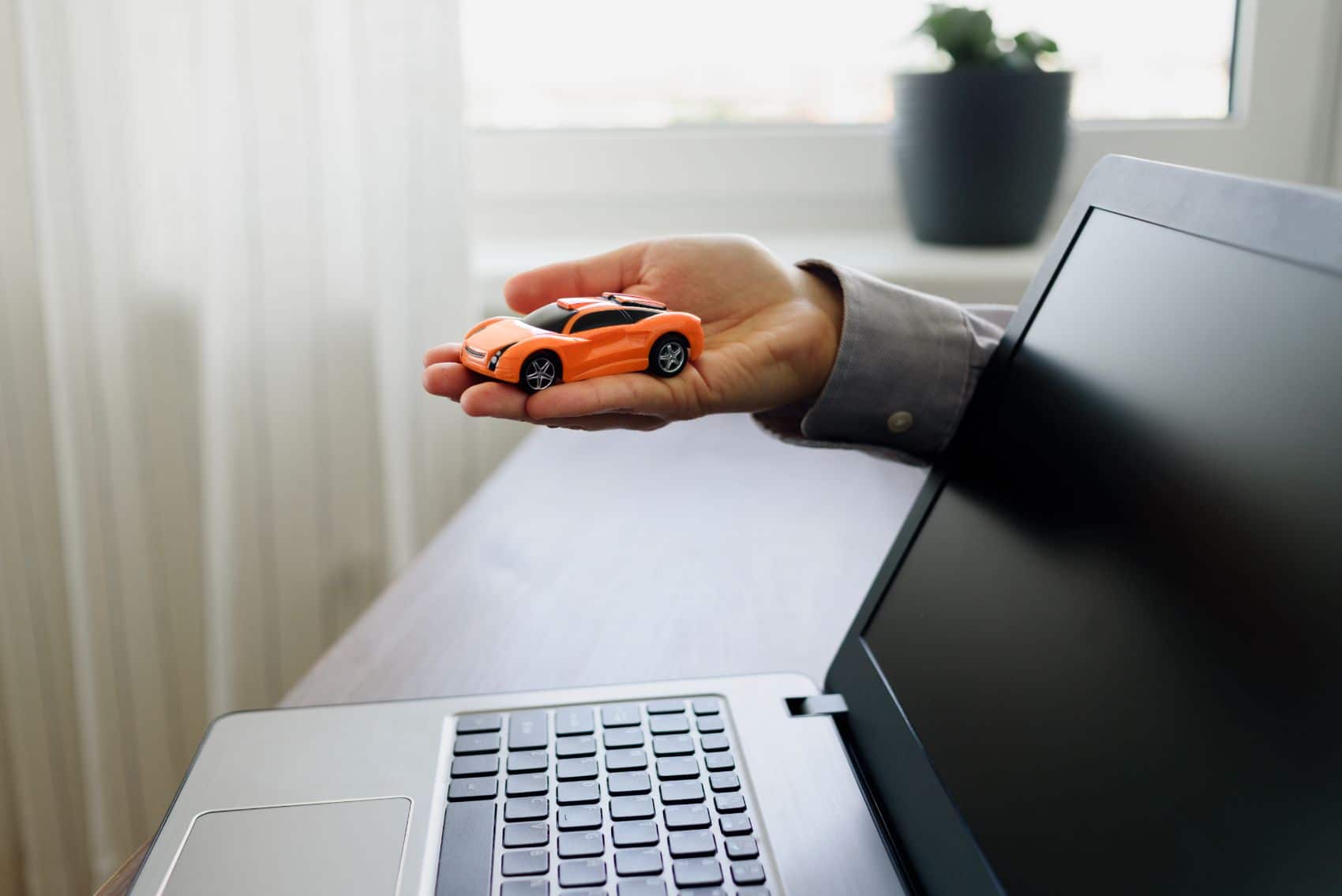You likely already research the car you want to buy online, but what about purchasing it online too? Instead of going to a dealership, you can research the vehicle you want, then buy it via your laptop smartphone at the same time? That may be the way of the future, according to one study.
Motus, a workforce solutions company, has released its latest report titled A Shift in Service Delivery: On-Demand Services Shape 2021, which examines how “digital retail channels” are gaining traction in the automotive industry following COVID-19. According to the report, 80 percent of consumers now prefer hybrid or online shopping when either purchasing, maintaining, or insuring their vehicles. Furthermore, the Motus report notes that consumers believe they save both time and money with online shopping compared to in-person experiences.
Shifting Mindsets Towards Retail
According to the report, as consumers shift their shopping mindset from brick and mortar to digital options, the market will continue to see waves in how on-demand services are delivered. In its report, Motus cites how online purchases grew 24 percent globally in 2020, while in-store sales dropped by seven percent. The Motus report also concludes that online shopping will still be a preferred method for many, despite mask mandates having mostly lifted nationwide. According to the report, an estimated 17 percent of goods will be bought online in 2021, nearly doubling from 2016.
“On-demand goods and service delivery has evolved beyond necessity and convenience to help us navigate the world mid-pandemic and beyond,” explained Ken Robinson, Market Research Manager for Motus. “As consumers increasingly are favoring digital channels, brands need to adapt to offering online and hybrid digital experiences.”

Online Car Buying
The Motus report shows that in 2020, nearly 30 percent of all new car sales in the United States happened online, a 20 percent increase compared to pre-pandemic percentages. Brands and retailers hesitant to adopt an online-only business model may want to try a hybrid approach instead. Motus found that hybrid buying models, supported by both a digital and in-person experience, can shorten transaction times by as much as 75 percent. “The pandemic continues to affect the way we learn, live, and work,” Robinson said. “People are discovering ways to foster a better work/life balance and make the most of their time off-line.”
Either way, consumers that utilized a hybrid or online-only method to car buying saved nearly three hours researching and shopping for vehicles during the pandemic. For these reasons, Automoblog offers an extensive array of vehicle and dealership search tools designed to save readers time and money. One tool helps consumers find the best deals on new cars, while the second tool takes the edge off looking for a used vehicle.
“While Automoblog and its partners do have the potential to earn a commission at a later date from these search tools and services, they will always be free for our readers to use as they need,” said Carl Anthony, Managing Editor of Automoblog. “Readers can use these tools from the comfort of their own home to see which dealers in their area are offering the best price on the vehicle of their choice.”

On-Demand Vehicle Maintenance
Consumers are also interested in scheduling service and maintenance work online. The Motus report finds that mobile technician services, like YourMechanic and RepairSmith, can save customers up to 30 percent since such services do not have the overhead of a physical shop. Time is a consideration as well.
“People are busier than ever, and car repairs are something that can eat up an entire day,” explained RepairSmith CEO Joel Milne. When a service is requested, a certified technician arrives in a company van with the tools and parts for the given repair. These technicians perform nearly all repairs on the customer’s territory, most often at their homes or places of business. “We can fix 80 percent of the typical maintenance issues in the driveway,” Milne added.
Online Insurance Shopping & Claims
Like virtual car buying and on-demand vehicle maintenance, consumers gravitated more towards digital auto insurance tools during quarantine. The Motus report notes that pay-as-you-go or pay-per-mile insurance options help policyholders control costs based on how much they drive. This is especially true for people driving less than 500 miles per month.
“Available through most carriers, usage-based plans can offer somewhat real-time relief to those driving less or driving safer,” said Robert Lajdziak, Senior Consultant for insurance intelligence at J.D. Power. “Interest in such programs has increased as a result of COVID-19, given consumers still expect to be driving less in the future, whether to remain working at home or simply because they want to spend less time in public.”
In 2020, the auto insurance industry returned $18 billion in premiums to policyholders. State Farm was among the many who sent partial refunds to policyholders who were driving less. In early April 2020, State Farm announced they would issue dividends for premiums paid between March 20th and May 31st. “On average, customers will receive a credit of about 25 percent of the premium paid for that time frame,” said Tammi Estes, Public Affairs Senior Specialist for State Farm at the time.
Allstate, Geico, Farmers, Progressive, USAA, and numerous other providers sent premium refunds between 15 and 20 percent to their customers in 2020. “With respect to COVID-19, rates didn’t go down, but consumers received refunds and dividends from the insurer,” Lajdziak added.
Further Reading
A Shift in Service Delivery: On-Demand Services Shape 2021 is available from Motus on its official website. Despite pre-pandemic apprehension, 74 percent of new car shoppers and 71 percent of used car shoppers say they are satisfied with their online buying experience. That’s up 62 percent and 60 percent, respectively, when compared to 2019.
“Car buying has long been a stressor for consumers, but I believe many are finding the online and hybrid approaches mentioned here are both easier and more transparent,” Anthony said. “These types of retail experiences in the car business help keep the ball in the customer’s court, which will inevitably increase their satisfaction with the final purchase.”




